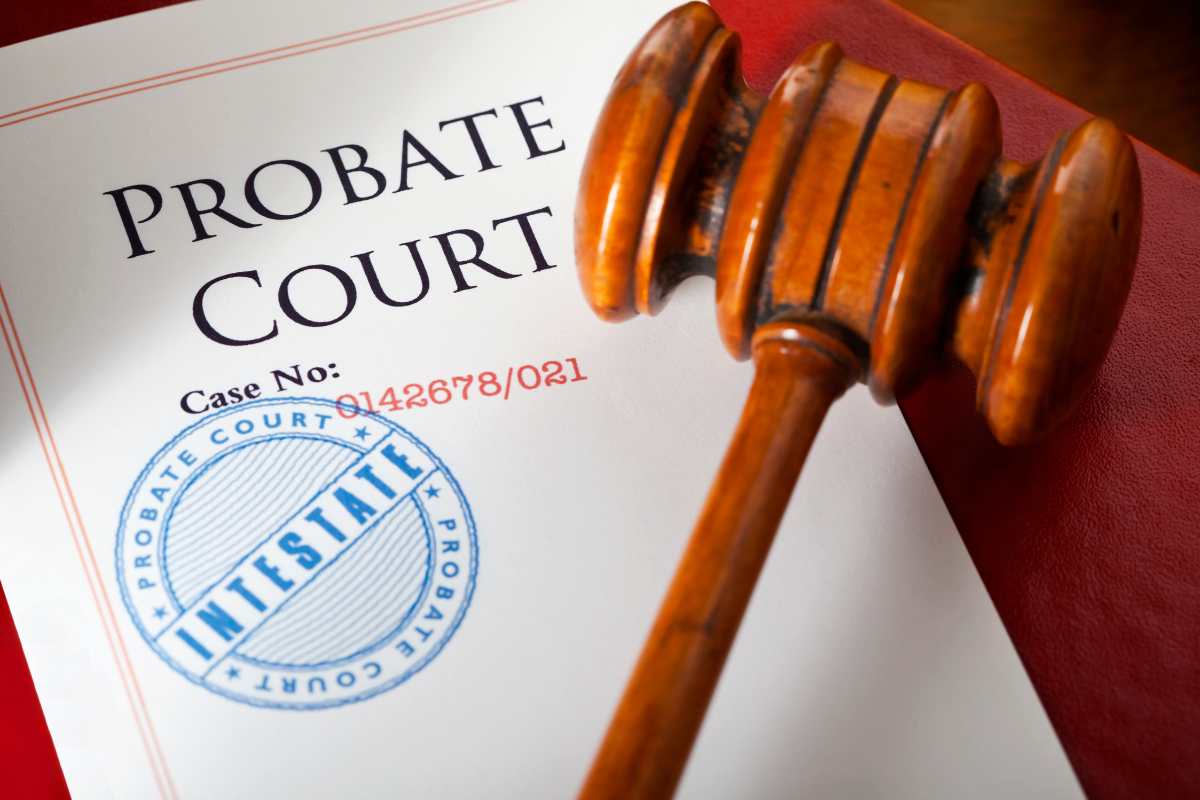Post Disclaimer: This blog reflects the author's personal experience with end-of-life matters and is provided in good faith for informational purposes only. While we aim to provide clear guidance on hard-to-find topics, this content is not legal advice and your use is at your own risk. Estate planning and end-of-life laws vary by location, so please consult your state's laws and seek guidance from a licensed attorney for your specific situation. We make no warranty about the accuracy or completeness of this information, which does not replace professional legal counsel. For more information, please see our full disclaimer.
What is probate? It's a legal process that many families face while already dealing with the emotional challenges of losing a loved one.
During this difficult time, handling legal matters can feel particularly overwhelming.
This guide walks you through the key aspects of probate, providing you with the knowledge and confidence to navigate this sensitive process.
Table of Contents
- Understanding Probate: The Basics
- When Is Probate Required?
- The Probate Process: A Timeline
- Common Challenges and Solutions
- State Variations in Probate Law
- Essential Record-Keeping Guidelines
- When Probate Might Not Be Necessary
- Getting Help When You Need It
- Wrap-up: What is Probate?

Understanding Probate: The Basics
Probate is the legal process of administering and distributing a deceased person's estate.
Think of it as a structured way to ensure your loved one's affairs are properly settled and their wishes are honored.
Whether your loved one left a will or not, probate helps prevent misunderstandings and ensures everything is handled according to law.
The process serves several crucial purposes:
- Validates your loved one's will (if one exists)
- Ensures all debts and taxes are properly paid
- Distributes remaining assets to the rightful beneficiaries
- Provides a framework for resolving any disputes that might arise

When Is Probate Required?
Not all assets need to go through probate.
Generally, probate is necessary when your loved one owned assets in their name alone.
However, certain assets typically bypass probate, including:
- Life insurance policies with named beneficiaries
- Retirement accounts with designated beneficiaries
- Property owned jointly with right of survivorship
- Assets held in a living trust

The Probate Process: A Timeline
Understanding the typical timeline can help set expectations and reduce anxiety about the process:
Month 1-2: Initial Steps
- File the petition with the probate court
- Notify all interested parties
- Obtain Letters Testamentary or Letters of Administration
- Begin creating asset inventory
- Start collecting death certificates and other necessary documents
Months 2-4: Asset Management
- Complete inventory of assets
- Notify creditors through proper channels
- Begin paying valid debts
- Set up estate bank account
- Start managing ongoing expenses
Months 4-8: Claims Period
- Process creditor claims
- File estate tax returns if required
- Pay outstanding taxes
- Begin preliminary asset distribution planning
Months 8-12: Distribution
- Prepare final accounting
- Obtain court approval for distribution
- Distribute assets to beneficiaries
- Close the estate
Note that this timeline can vary significantly depending on your state and the complexity of the estate.

Common Challenges and Solutions
Challenge 1: Family Disagreements
Family tensions often surface during probate.
To minimize conflicts:
- Maintain transparent communication
- Document all decisions and their reasoning
- Consider family mediation for serious disputes
- Keep detailed records of all conversations and agreements
Challenge 2: Complex Assets
Some estates include difficult-to-value assets like:
- Family businesses
- Intellectual property
- Collectibles or antiques
- Cryptocurrency
In these cases, seek professional appraisals and maintain detailed documentation of valuation methods.
Challenge 3: Missing Documents
If important documents are missing:
- Check your loved one's digital files
- Contact their attorney, accountant, or financial advisor
- Review bank safety deposit boxes
- Search home office and filing systems systematically

State Variations in Probate Law
While probate follows similar patterns nationwide, state laws can vary significantly:
Community Property States
Nine states (Arizona, California, Idaho, Louisiana, Nevada, New Mexico, Texas, Washington, and Wisconsin) follow community property laws, affecting how marital assets are handled in probate.
Small Estate Procedures
Many states offer simplified procedures for small estates.
For example:
- California: Estates under $184,500
- New York: Estates under $50,000
- Texas: Estates under $75,000
See this download for a complete list of all small estate thresholds.
Executor Requirements
Some states have specific requirements for executors:
- California requires executors to be bonded unless the will waives this requirement
- Florida requires out-of-state executors to be close relatives
- Some states require executors to be represented by an attorney

Essential Record-Keeping Guidelines
Maintaining organized records is crucial.
Create a system to track:
Financial Records
- Bank statements
- Investment account statements
- Bills paid
- Income received
- Tax documents
- Estate expenses
Legal Documents
- Death certificates
- Will and any codicils
- Trust documents
- Court filings
- Correspondence with beneficiaries
- Creditor claims
Asset Documentation
- Property deeds
- Vehicle titles
- Insurance policies
- Business ownership documents
- Appraisals
- Photographs of valuable personal property

When Probate Might Not Be Necessary
Several situations might allow assets to transfer without probate:
Small Estate Affidavits
Many states allow simplified procedures for small estates, bypassing full probate.
Transfer-on-Death Provisions
Assets with designated beneficiaries often transfer automatically, including:
- Bank accounts with POD designations
- Securities registered as TOD
- Vehicles with TOD registrations (in some states)
Living Trusts
Assets properly transferred to a living trust during the deceased's lifetime bypass probate entirely.

Getting Help When You Need It
While understanding probate is important, remember that you don't have to handle everything alone.
Consider seeking help from:
- A probate attorney who can guide you through complex legal matters
- A financial advisor to help with asset management and tax implications
- A grief counselor to support you through the emotional aspects of loss
- Family members who can share the responsibilities

Wrap-up: What is Probate?
While navigating probate might feel daunting during an already difficult time, understanding the process can help you handle it with confidence.
Remember that this process exists to protect everyone involved and ensure your loved one's affairs are settled properly.
Take comfort in knowing that millions of families have successfully managed probate before you, and with patience and proper guidance, you can too.
Additional Resources
Having reliable resources at hand can be crucial for families navigating probate.
These carefully curated books provide practical guidance and step-by-step assistance through the estate settlement process:
- How to Probate an Estate: A Step-By-Step Guide for Executors (link to book at Amazon -> https://amzn.to/4f5GEDa)
How to Probate an Estate: A Step-By-Step Guide for Executors, by the staff of EstateBee, provides a practical roadmap for anyone serving as an estate's executor. This hands-on resource breaks down the probate process into manageable tasks, offering clear instructions for everything from filing initial court papers to distributing assets. Written in plain English rather than legal jargon, it guides readers through complex decisions, document preparation, and common challenges. The book includes sample forms, checklists, and timelines while addressing critical topics like estate taxes, creditor claims, and family dynamics.
- How Probate Works: A Guide for Executors, Heirs, and Families (link to book at Amazon -> https://amzn.to/3VvIUfY)
How Probate Works: A Guide for Executors, Heirs, and Families by Anthony Park demystifies the probate process for all parties involved in settling an estate. Written for both executors and beneficiaries, this accessible guide explains court procedures, timelines, and legal requirements in straightforward terms. It covers essential topics like asset inventory, debt settlement, and distribution of property while addressing common family concerns and conflicts. With practical examples and state-specific information, readers gain a clear understanding of their rights, responsibilities, and what to expect at each stage of the process.
- The Executor's Handbook: A Step-by-Step Guide to Settling an Estate (link to book at Amazon -> https://amzn.to/3ZLMqW3)
The Executor's Handbook: A Step-by-Step Guide to Settling an Estate by Theodore Hughes and David Klein serves as a comprehensive companion for newly appointed executors. This practical manual walks readers through their duties chronologically, from the first days after a death through the final distribution of assets. It combines actionable checklists, real-world examples, and detailed guidance on executor responsibilities, including tax obligations, property management, and dealing with beneficiaries. The book also addresses special situations like business assets and disputes, helping executors confidently navigate their role while avoiding common pitfalls.
Check out the Up & Doing glossary page for an alphabetical listing of key terms related to estate administration, funeral planning, and other end-of-life topics.




